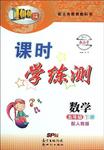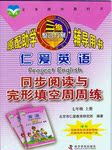题目内容
A few years ago, I took a sightseeing trip to Washington, D.C.Standing outside the Ronald Reagan Center, I heard a voice say, “Can you help me?” When I turned around, I saw an elderly blind woman with her hand extended.In a natural reflex, I reached into my pocket, pulled out all of my loose change and placed it on her hand without even looking at her.I was annoyed at being bothered by a beggar.But the blind woman smiled and said, “I don’t want your money.I just need help finding the post office.”
In an instant, I realized what I had done.I judged another person simply for what I assumed she had to be.I hated what I saw in myself.This incident re-awakened my belief in humility(谦恭), even though I’d lost it for a moment.
The thing I had forgotten about myself is that I am an immigrant.I left Honduras and arrived in the U.S.at the age of 15.I started my new life with two suitcases, my brother and sister, and a strong, serious-minded mother.Through the years, I have been a dishwasher, mechanic and pizza delivery driver among many other humble jobs, and eventually I became a network engineer.
In my own life, I have experienced many open acts of prejudice (偏见).I remember a time, at age 17 —— I worked as a waiter, and I heard a father tell his little boy that if he did not do well in school, he would end up like me.I have also witnessed the same treatment of my family and friends, so I know what it’s like, and I should have known better.
But now, living in my American middle-class lifestyle, it is too easy to forget my past, to forget who I am and where I have been, and to lose sight of where I want to be going.That blind woman on the streets of Washington, D.C., cured me of my blindness.She reminded me of my belief in humility and to always keep my eyes and heart open.By the way, I helped that lady to the post office.And in writing this essay, I hope to thank her for the priceless lesson.
小题1:We can learn from the first two paragraphs that _______.
小题2:According to Paragraph 4, hearing the father’s words, the author was probably _______.
小题3:According to the passage, the author probably agrees that one should _______.
小题4:Which of the following can be the best title for the passage?
In an instant, I realized what I had done.I judged another person simply for what I assumed she had to be.I hated what I saw in myself.This incident re-awakened my belief in humility(谦恭), even though I’d lost it for a moment.
The thing I had forgotten about myself is that I am an immigrant.I left Honduras and arrived in the U.S.at the age of 15.I started my new life with two suitcases, my brother and sister, and a strong, serious-minded mother.Through the years, I have been a dishwasher, mechanic and pizza delivery driver among many other humble jobs, and eventually I became a network engineer.
In my own life, I have experienced many open acts of prejudice (偏见).I remember a time, at age 17 —— I worked as a waiter, and I heard a father tell his little boy that if he did not do well in school, he would end up like me.I have also witnessed the same treatment of my family and friends, so I know what it’s like, and I should have known better.
But now, living in my American middle-class lifestyle, it is too easy to forget my past, to forget who I am and where I have been, and to lose sight of where I want to be going.That blind woman on the streets of Washington, D.C., cured me of my blindness.She reminded me of my belief in humility and to always keep my eyes and heart open.By the way, I helped that lady to the post office.And in writing this essay, I hope to thank her for the priceless lesson.
小题1:We can learn from the first two paragraphs that _______.
| A.the author regretted his act of prejudice |
| B.the blind woman needed the money badly |
| C.the author was as poor as the blind woman |
| D.the author was a native American |
| A.rather hurt | B.very excited |
| C.deeply moved | D.greatly inspired |
| A.be nice to the elderly and the disabled |
| B.try to experience different kinds of life |
| C.treat others equally with love and respect |
| D.think about one’s past as often as possible |
| A.Learn from your past |
| B.How my dream comes true |
| C.A Belief that will never change |
| D.A priceless lesson in the street |
小题1:A
小题2:A
小题3:C
小题4:D
试题分析:小题1:A 推理题。根据第二段 In an instant, I realized what I had done.I judged another person simply for what I assumed she had to be.I hated what I saw in myself.说明我为自己的偏见感觉羞愧,故A正确。
小题2:A 推理题。根据第四段I have experienced many open acts of prejudice (偏见).I remember a time, at age 17 —— I worked as a waiter, and I heard a father tell his little boy that if he did not do well in school, he would end up like me.对方说这样的话是严重的看不起我,让我感觉很受伤。
小题3:C 推理题。根据最后一段2,3行That blind woman on the streets of Washington, D.C., cured me of my blindness.She reminded me of my belief in humility and to always keep my eyes and heart open.和文章第二段第二句This incident re-awakened my belief in humility(谦恭), even though I’d lost it for a moment.说明我意识到自己的问题所在,根据外表去判断一个人,而没有公平地对待别人,故C正确。
小题4:D 主旨大意题。文章讲述的是一个盲人给我上了生动的一课,让我认识到自己的问题所在,故D正确。
点评:文章讲述的是一个盲人给我上了生动的一课,让我认识到自己的问题所在,即不能公平地对待每一个人。本文集中考查推理题,对于考生在上下文中理解字里行间的能力要求较高。

练习册系列答案
 百年学典课时学练测系列答案
百年学典课时学练测系列答案 仁爱英语同步练习册系列答案
仁爱英语同步练习册系列答案
相关题目